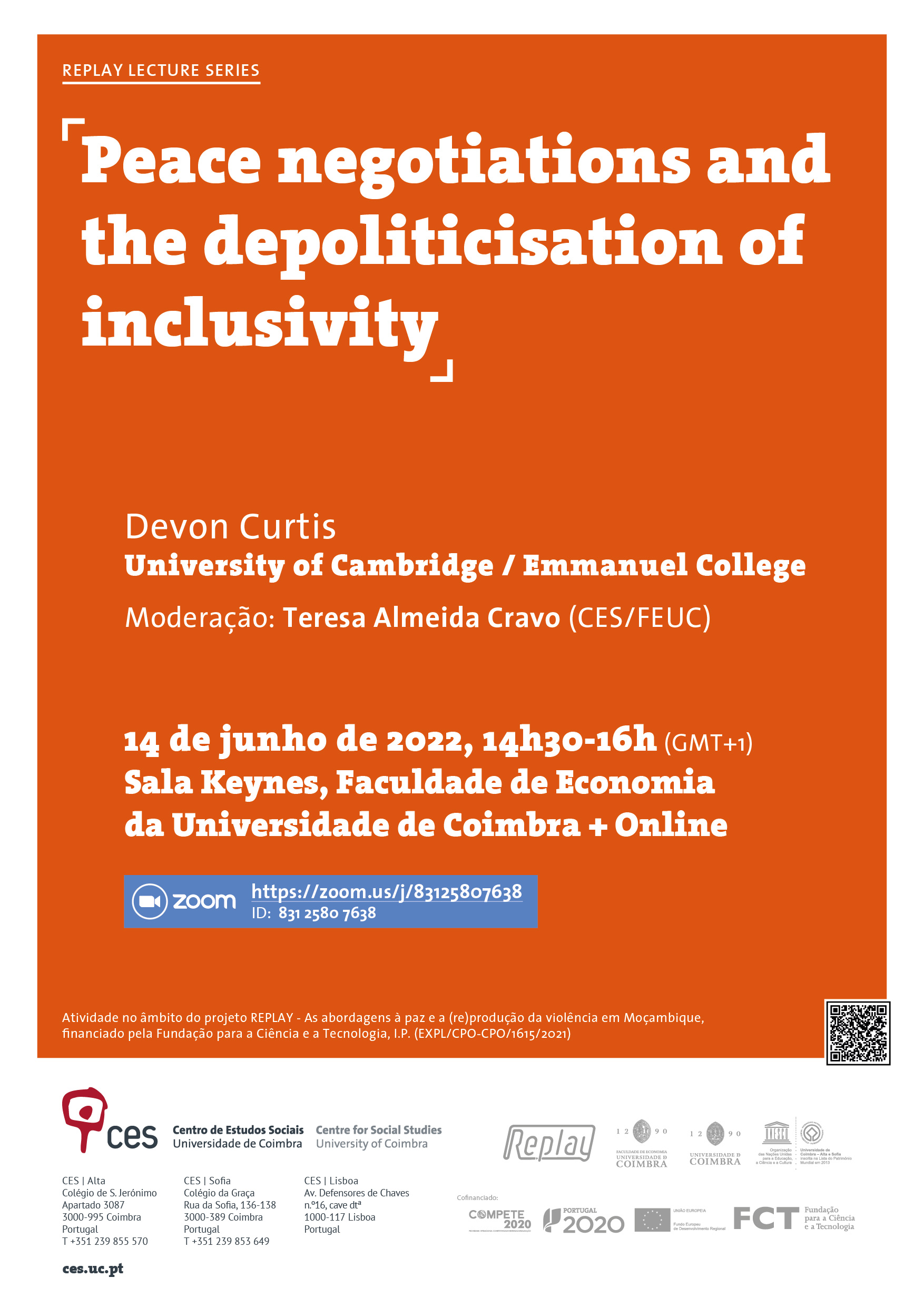Approaches to peace and the (re)production of violence in Mozambique
REPLAY Lecture Series
Peace negotiations and the depoliticisation of inclusivity
Devon Curtis (University of Cambridge / Emmanuel College)
June 14, 2022, 14h30-16h00 (GMT+1)
Keynes Room, Faculty of Economics of the University of Coimbra + Online
Zoom: https://videoconf-colibri.zoom.us/j/83125807638
Moderation: Teresa Almeida Cravo (CES/FEUC)
Overview
As in many other areas of peacebuilding and development, international donors, mediators, participants, and observers often advocate 'inclusivity' in peace negotiations. It is difficult to be against the idea of inclusivity, yet there is enormous conceptual confusion surrounding the term. Many different actors and organisations profess rhetorical commitment to inclusivity, yet they use the term in very different and sometimes contradictory ways. There are profound disagreements on who should be included in peace negotiations, at what stage and for what end. This article discusses these ambiguities and explores the rise of the discourse and practices of inclusivity in peace negotiations. It argues that the interest in inclusivity has more to do with international normative and political agendas than with any empirical consensus about the best way to achieve peace. While inclusivity can serve as an important rallying cry for diverse actors who wish to claim a voice and political platform in peace negotiations, there is also a risk that the pursuit of inclusivity in peace negotiations can have depoliticising effects. Thus, both the power of inclusivity, as well as its limitations, lie in its ambiguities.
Bio note
Devon E. A. Curtis is an Associate Professor in the Department of Politics and International Studies at the University of Cambridge and a Fellow of Emmanuel College. Her main research interests and publications deal with power-sharing and governance arrangements following conflict, UN peacebuilding, non-state armed movements in Africa, and critical perspectives on conflict, peacebuilding, and development. Her field research concentrates on the Great Lakes region of Africa, especially Burundi, Rwanda and the Democratic Republic of the Congo.
Ativity within the research project «REPLAY - Approaches to peace and the (re)production of violence in Mozambique», funded by the Fundação para a Ciência e a Tecnologia, I.P. (EXPL/CPO-CPO/1615/2021)


